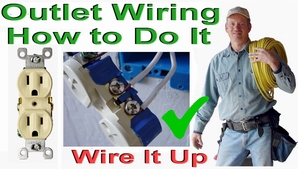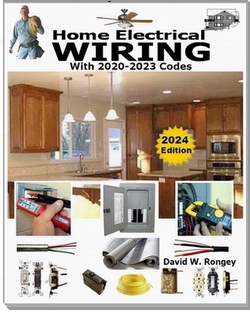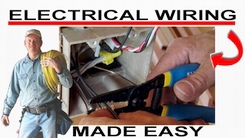» Need Electrical Help? Ask the Electrician
Rv outlets
click image to enlarge
 |
By Dave Rongey
Summary: Electrical Rv-electrical Question: Dave, Just wanted to comment that you have an excellent site. Being a former licensed master electrician myself , and now disabled, I still get calls years after I retired. © By: Dave Rongey |
RV-Electrical: Rv outlets
Electrical Wiring Video
Electric Outlet Wiring, How to Wire an Outlet
CLICK THE IMAGE OR THE LINK BELOW TO PLAY THIS YOUTUBE VIDEO

Electric Outlet Wiring, How to Wire an Outlet
Click Here to Play my Electrical Wiring Videos
Be Sure to Subscribe to my YouTube Channel, Thank You!
Electrical Rv-electrical Question:
Dave, Just wanted to comment that you have an excellent site. Being a former licensed master electrician myself , and now disabled, I still get calls years after I retired. This will be a valuable resource I can point others to for help.
Thanks- Scott Duckworth.Hi Scott, Thank You so much!
Your comment is especially encouraging, coming from a fellow Electrician. My family and I have been working on the site for over 2 years now, and we really have a long way to go. It's especially tough doing this while still running my own electrical business. I'm often up until the wee hours of the morning adding new content and improving what is already there along with answering a few questions. Any suggestions would be greatly appreciated and respected. I have a database of hundreds and hundreds of pictures that need to go up on the website, and prioritizing them is a real challenge, so any requests will definitely be taken into considerationGreat hearing from you, please stay in touch. Sincerely, Dave
From: Rev. Scott Duckworth One thing you might consider is a section devoted to the Recreational Vehicle Outlet. I used to also be service manager of an RV dealer, and I used to see RV's come in that had been plugged into RV outlets installed at home that were wired 220V instead of 120V. A lot of electricians don't understand this special outlet, yet more and more are installed at homes so folks can plug their camper in while it is there.













